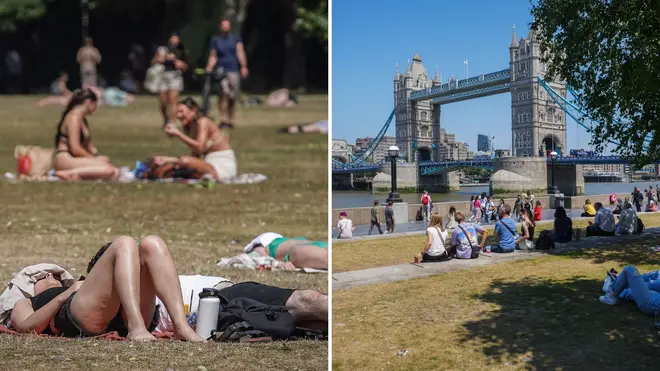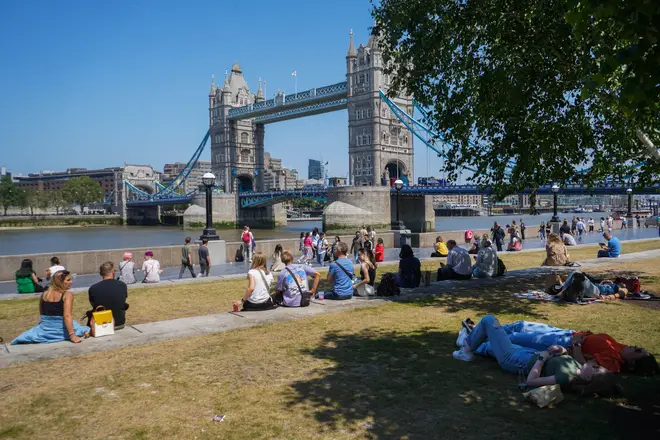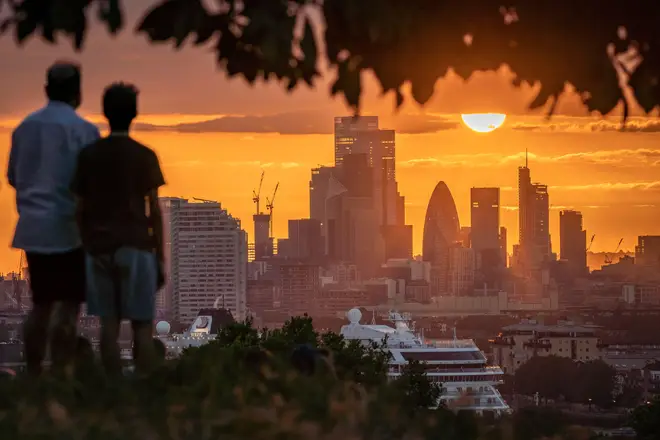
Shelagh Fogarty 1pm - 4pm
16 July 2023, 11:19

Britain risks an increase in crime because it is particularly at risk of seeing hotter and more uncomfortable days.
A new study has revealed that if the planet heats by 2C, it will see an increase of 30% of uncomfortably hot temperatures.
This does not include the impact of heatwaves - which would only add to the average rise.
Only Switzerland will see such a drastic change in days as the UK, research from Oxford University shows.
Failure to rein in climate change and adapt sufficiently could leave Britain exposed to power cuts, a worse-performing economy and even a rise in crime.
"The larger literature does show that sexual violence in particular does go up during times of increased heat," said the study's co-author Dr Radhika Khosla.
"Larger social issues are a risk."

Her study has exposed how essential it is that Britain supports keeping focus on limiting global warming to 1.5C this century.
But if it is missed - and some experts fear it could be missed within years - Dr Khosla's report shows there will be "more intense, extreme heat", she said.
"It means the days are going to be uncomfortably hot, are going to be significantly more than the number of days that are uncomfortably hot today," Dr Radhika, the leader of the Oxford Martin Programme on the Future of Cooling, told LBC.
That means more days where the mean temperature across all 24 hours in a day is above 18C.
And those more extreme temperatures could lead to severe consequences.
"If we don't take action we see a series of knock on effects. Health is really key given a large number of cardiovascular diseases that heat promotes," she feared.

"Similarly, around mental health. There's also risks to productivity, to food security, to the access to electricity and energy.
"The grid can collapse if the demand is too high so there's ripple effects across all issues of quality of life and therefore it can't be ignored."
She says politicians need to start thinking about a radical redesign of buildings to accommodate soaring temperatures.
Her report says these more numerous "uncomfortable days" will require cooling - but air conditioning is a poor choice given how energy intensive it is.
Studies have shown a link between hotter weather and sexual violence.
A report on the United Nations website from 2021 suggested women "face different forms of sexual and gender based violence during and after all the disasters including climate change-induced events".
A 2007 study in Greater Manchester found a correlation between higher temperatures and sunshine and a "greater incidence of sexual assaults".
It is unclear what temperatures could rise to on the uncomfortable days the report fears will hit.
But the issue is less about a handful of days with extreme temperatures - like last year's 40C heatwave - but sustained uncomfortably hot ones.
Co-lead author Dr Nicole Miranda said: "Northern European countries will require large-scale adaptation to heat resilience quicker than other countries.
"The UK saw massive amounts of disruption in the record-breaking heatwaves of 2022. Extreme heat can lead to dehydration, heat exhaustion, and even death, especially in vulnerable populations.
"It's a health and economic imperative that we prepare for more hot days."